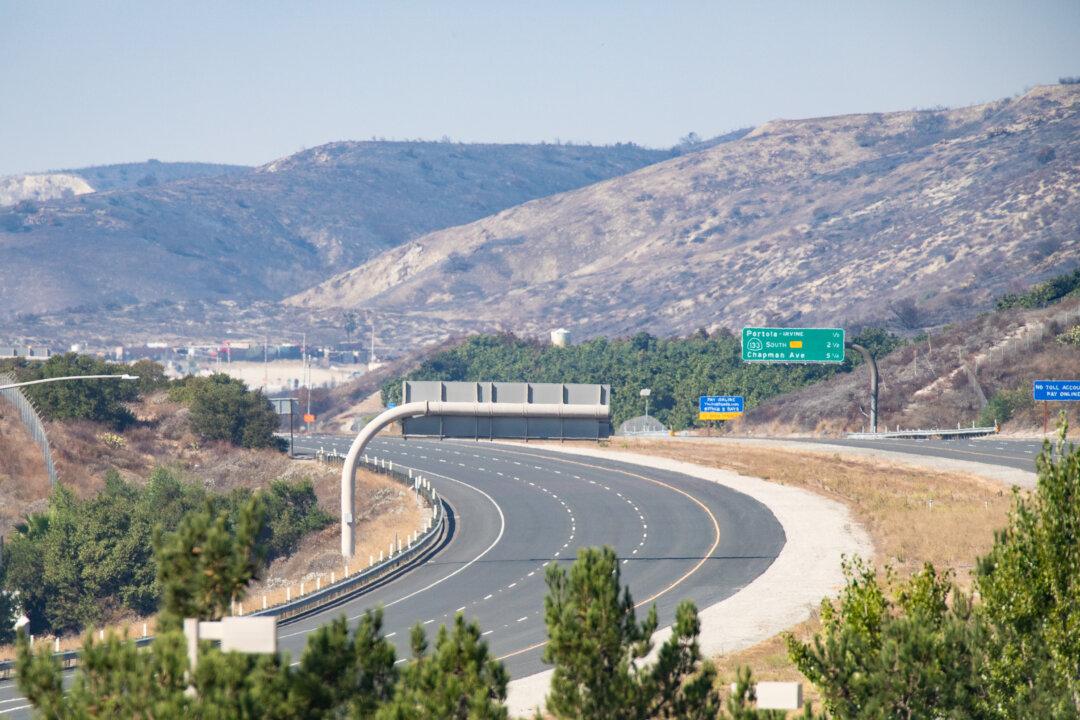SANTA ANA, Calif.—The Orange County grand jury June 21 issued a critical report about the county’s toll roads, arguing the agencies overseeing them should be working to retire debt and transition to freeways.
The “$28 Billion for a $2.8 Billion Road” makes the case that the transportation corridor agencies have become a self-perpetuating bureaucracy with no end in sight.





